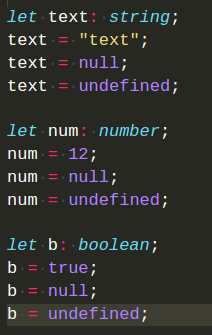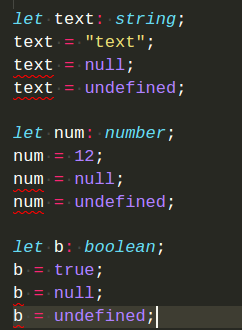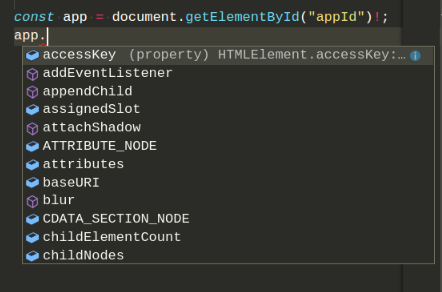This lesson introduces the --strictNullChecks compiler option and explains how non-nullable types differ from nullable types. It also illustrates how you can write safer code by being explicit about null and undefined in the type system.
First of all:
Number, string, boolean types can be assign to null or undefiend.

If we don't want null or undefined, we can turn on "strictNullCheckes" in the tsconfig.json.
{ "compilerOptions": { "strictNullChecks": true } }

We can fix the compiler error by using unit type:
let text: string | null | undefined; text = "text"; text = null; text = undefined;
Another thing about vscode autocompletion, as we can see that document.getElementById() return HTMLElement or null:

Because of null type, so we cannot get autocompletion in IDE:

Typescript force us to do type checking, we can do:

As we can see that, once we wrap it into if statement, then we can get autocompletion because typescript now knows that 'app' is only HTMLElmenet type.
Last, in Typescript, we can write sytax like:
const app = document.getElementById("appId")!;
We add '!' in the end, it tell Typescript, null type is not allowed.
Then we can get autocompletion with if statement. But this is only a valid snytax in typescript.
